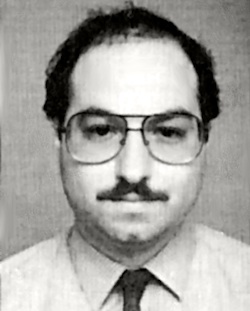Jonathan Pollard, the U.S. Naval Intelligence officer who betrayed his country, has served a long time in prison for his crime. Instead of continuing to rely on the failed strategy of presidential clemency in seeking early release, the convicted spy should do something he has never tried: apply for parole.
Jonathan Pollard betrayed his country and he continues paying the price for doing so. Whether or not he has fully paid his debt to society, the claim by Pollard’s supporters that his release can only be secured by a presidential clemency request is deeply flawed.
U.S. President Obama was flooded with pleas to grant Pollard clemency ahead his visit to Jerusalem last month. In an interview with Israel’s Channel 2 on the eve of his trip, the US president addressed the issue. Although Obama stated clearly that he has no plans to grant Pollard clemency, he did extend a subtle invitation to Pollard to do something he has never before attempted: apply for parole.
“There is a justice system that allows for periodic review, and the potential for him ultimately being released,” Obama said about Pollard. “What I am going to be doing is to make sure that he, like every other American, who has been sentenced, is accorded the same kinds of review and same examination of the equities that any other individual [would receive].”
Pollard has never applied for parole (he was eligible after 10 years) because he fears the consequences of rejection could prejudice his chances for presidential clemency, according to the Justice for Jonathan Pollard website. But with Obama making clear that he will not grant Pollard clemency, and with the invitation to use the available legal tools for release, Pollard’s excuse has expired. More so, Pollard’s systematic failure to obtain clemency from four consecutive US presidents should have led him and his legal team to seek other legal avenues years ago.
In an editorial on April 13, The Jerusalem Post mistakenly wrote that Obama “appears to somehow shift responsibility back to Pollard, as if there were some other legal remedy that Pollard and his attorneys have not tried.” But that is exactly the case. Pollard has not exhausted all legal remedies, not by any standard.
It is true that Pollard has served more time in prison than most Americans convicted of the same crime (he is projected to serve only two more years). But it is also important to consider why Obama refuses to grant Pollard clemency, and what is behind the president’s his apparent preference for paroling him.
Parole carries with it conditions for release. One condition would almost certainly be a ban on leaving the country. The United States does not want to witness Pollard receiving a hero’s arrival in Israel. To Washington, Pollard is not an Israeli agent but an American who betrayed his country.
In fact, Pollard was not an Israeli citizen until nine years after his conviction. It is not common procedure for a federal prisoner to obtain a foreign citizenship while incarcerated, and the U.S. authorities probably weren’t thrilled by his acquisition.
Therefore, instead of making demands to the leader of the free world, Israel and the Free Pollard campaign should strategically consider under what conditions the United States might be more likely to release him. In its editorial, the Post lamented how Pollard has become a political pawn, perhaps to pressure Israel on unrelated issues. But it is Israel who made his release political. As Labor MK Avishai Braverman said in early March, “The minute Pollard was turned into a negotiating card, it killed the story.”
Once he was convicted and sentenced, Israel should have never attempted to publicly intervene on behalf of Pollard in seeking his early release. Doing so creates a situation in which the US would pay a political price if it grants him clemency. Only by quietly releasing him without fanfare or diplomatic drama can both the US government and Jonathan Pollard get what they want: to move on. And there is only one way for that to happen. Jonathan Pollard should apply for parole, like every other convicted criminal in the United States who wants to be released early.
Related:
Is an Israeli cover-up keeping Jonathan Pollard in prison?



